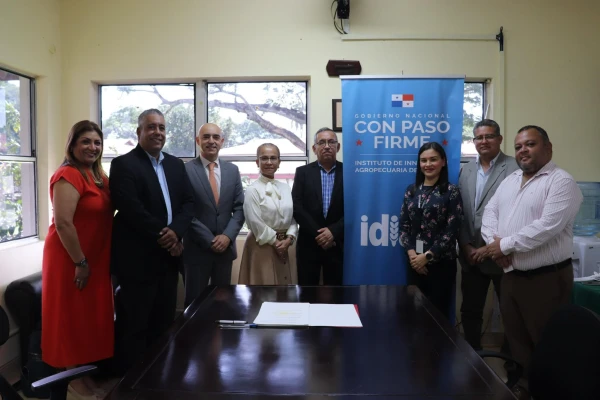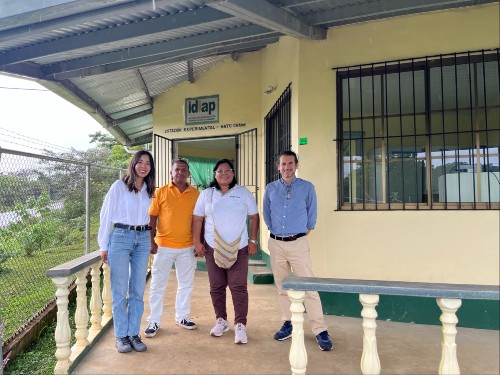IDIAP selects Aninver to work on Inclusive Agricultural Innovation in Panama
Aninver signs a new contract with IDIAP and the IDB to support sustainable and inclusive agricultural innovation in Panama.

Aninver Development Partners is proud to announce the signing of a new consulting contract with the Instituto de Innovación Agropecuaria de Panamá (IDIAP) for the Proyecto de Innovación Agropecuaria Sostenible e Inclusivo (PIASI), a strategic initiative financed by the Inter-American Development Bank (IDB).
The PIASI Project seeks to strengthen the capacity of Panama’s agricultural sector to respond to challenges related to climate change, food security, and rural livelihoods. The program focuses on smallholder and family farmers, who represent the backbone of rural economies in Panama but often face limited access to technology, markets, and technical assistance.
The project will operate primarily in the western provinces of Bocas del Toro, Chiriquí, and the Comarca Ngäbe Buglé, regions characterized by their agricultural potential but also by high levels of multidimensional poverty and vulnerability to climate impacts.
Project Objectives and Approach
The overall objective of the project is to improve food security and increase the income of smallholder farmers through sustainable and inclusive agricultural innovation. To achieve this, PIASI is structured around three complementary components:
- Sustainable Productive Innovation – Promoting the adoption of agroecological and climate-resilient farming systems through the implementation of Agroecological Innovation Farms (FIAP), technical assistance programs, and Agroecological Innovation Vouchers (CIA) that allow farmers to access improved inputs and technologies.
- Inclusive Market Innovation – Supporting farmers and rural youth in developing business and market innovation plans, reducing post-harvest losses, and improving access to value chains with higher added value.
- Digital Management of Information and Processes – Strengthening institutional capacities within IDIAP and the Ministry of Agricultural Development (MIDA) to ensure digital monitoring, data-driven decision-making, and long-term sustainability.
Aninver’s Role
Under this contract, Aninver Development Partners will provide comprehensive technical assistance and project management support to facilitate the successful implementation of these components.
Over the next 27 months, our multidisciplinary team will:
- Support more than 5,000 smallholder farmers in transitioning to sustainable, agroecological systems that improve productivity while preserving natural resources.
- Train and mentor young “innovation links” (enlaces de innovación) to serve as field facilitators who accompany producers in adopting improved agricultural techniques and business practices.
- Deliver training programs that combine technical skills with “soft skills” to strengthen community leadership and promote youth engagement in rural development.
- Facilitate participatory innovation processes through demonstration farms and learning platforms that encourage peer-to-peer knowledge exchange among producers.
- Strengthen local institutions and knowledge systems, enhancing coordination among government agencies, farmers’ organizations, and other stakeholders involved in the agricultural innovation ecosystem.
This project builds upon Aninver’s extensive experience managing agriculture, rural development, and sustainability programs across Africa, Latin America, and the Caribbean. Our approach combines data-driven management, participatory capacity building, and digital innovation to achieve lasting impact.
First visit to the region
Over the past two weeks, the Aninver team has been on the ground in Bocas del Toro, Chiriquí, and the Comarca Ngäbe Buglé, meeting with local stakeholders, smallholder farmers, and project partners. These visits allowed the team to gain a deeper understanding of the regional context, assess ongoing agricultural practices, and identify opportunities for innovation and capacity building. The fieldwork also marked an important step in aligning with IDIAP’s local technical teams and ensuring that project activities are tailored to the specific needs and realities of each community.

